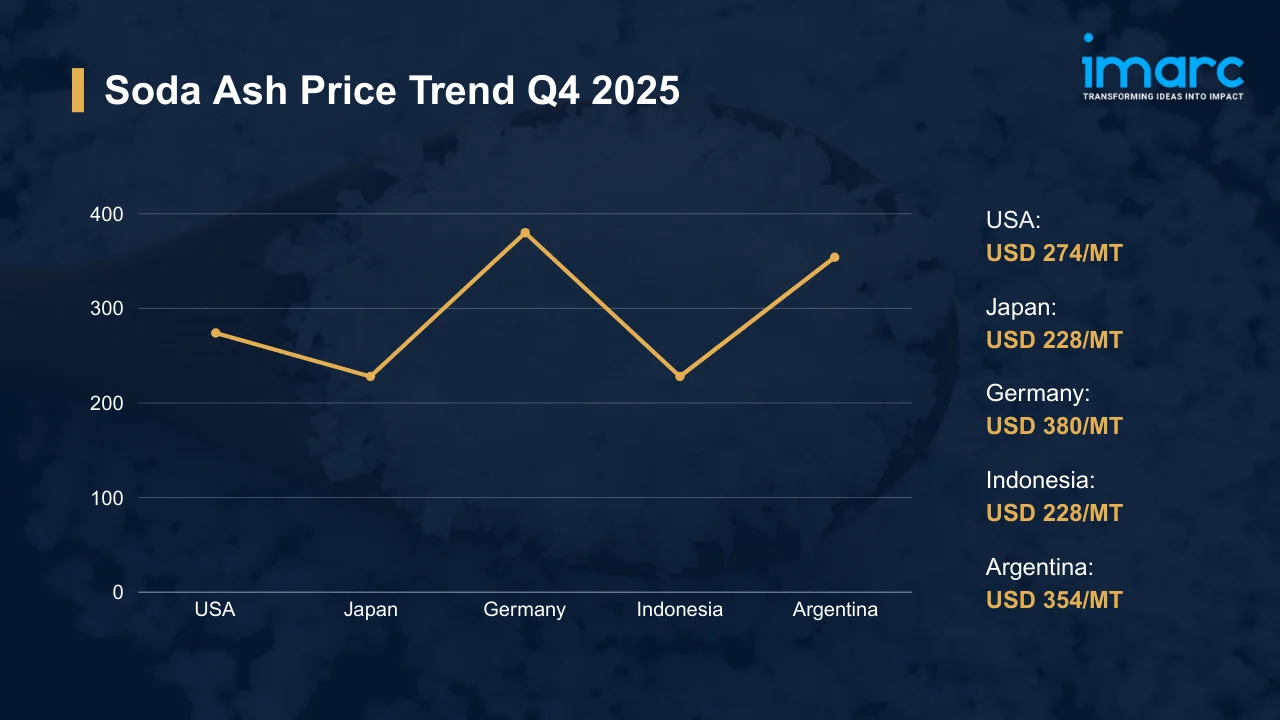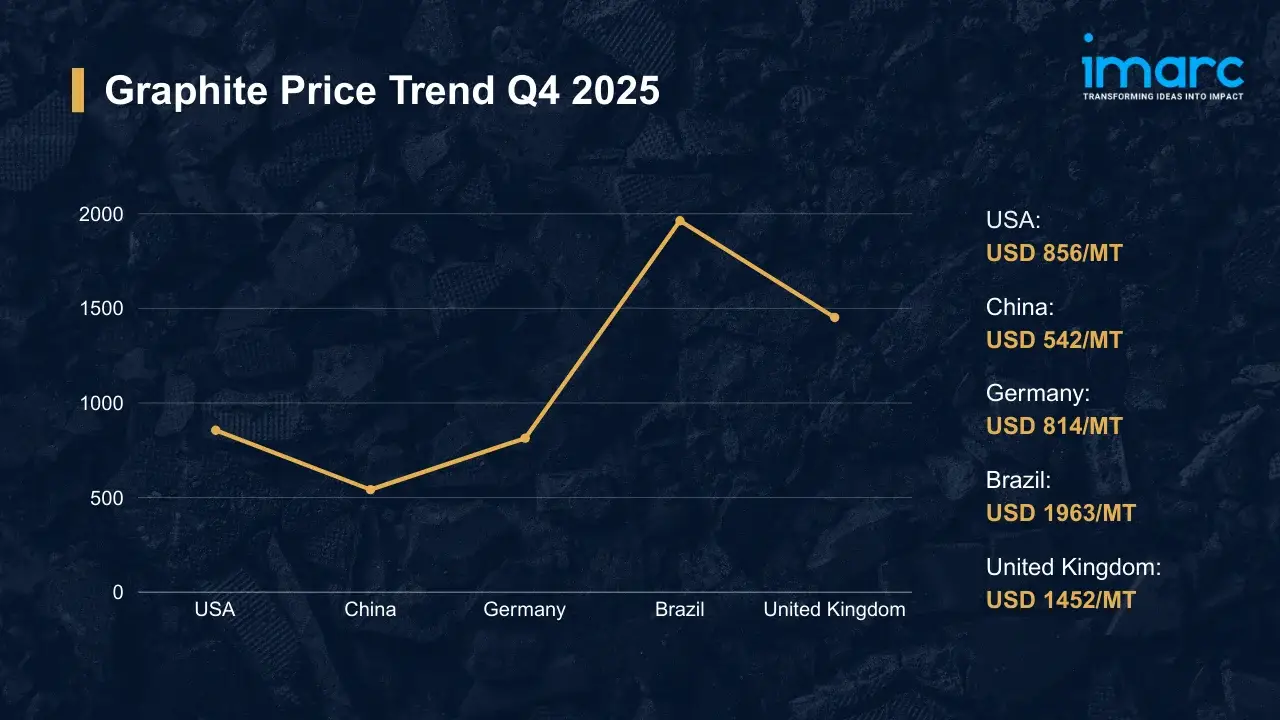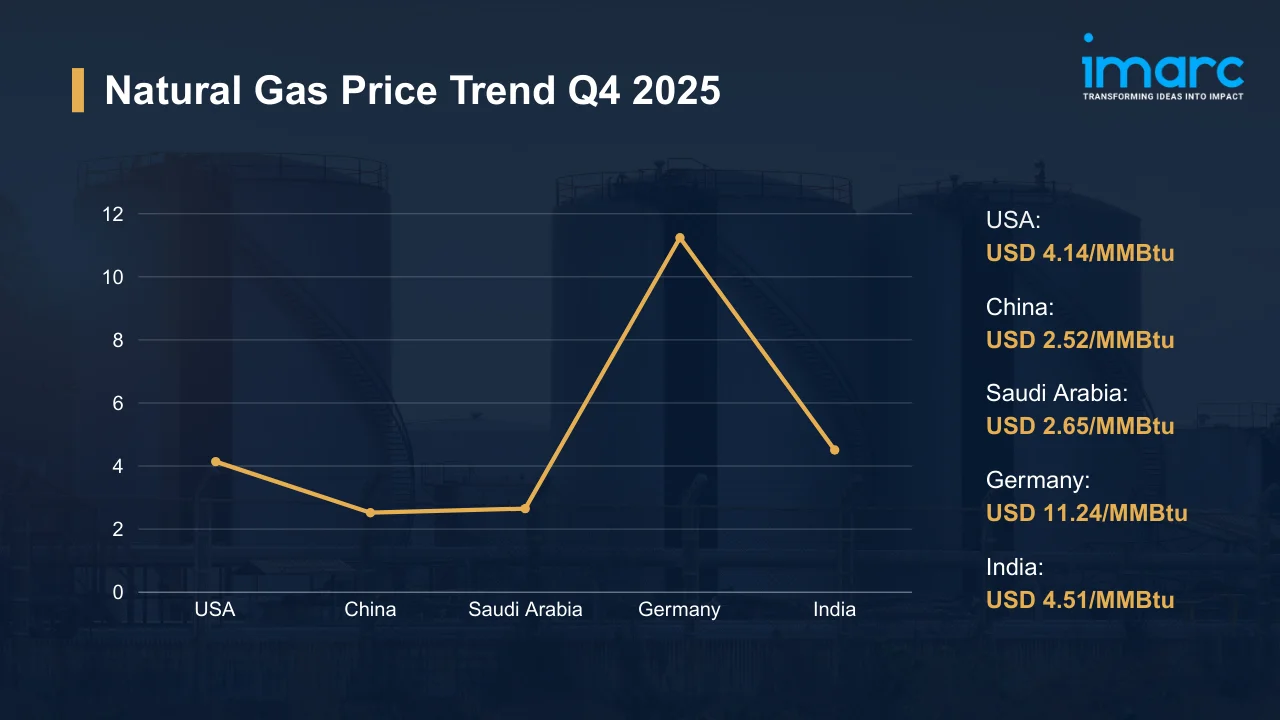LLDPE Prices Witness Fluctuations in Q2 Amid Changing Global Demand
14-Aug-2025_11zon.webp)
The global linear low-density polyethylene (LLDPE) market exhibited a mix of stability and regional divergence, according to IMARC Group’s latest publication, LLDPE Price Trend, Index and Forecast Data Report 2025 Edition, which provides updated insights for Q2 2025. The quarter saw prices supported by steady feedstock costs, selective export strategies, and regional trade dynamics, even as demand trends varied across major markets. Key pricing movements were recorded across North America, Asia Pacific, and Europe, reflecting evolving supply-demand balances and localized cost pressures.
Q2 2025 LLDPE Prices:
- USA: USD 1190/MT
- Japan: USD 1204/MT
- United Kingdom: USD 1683/MT
- Saudi Arabia: USD 1098/MT
- Brazil: USD 1294/MT
.webp)
To access real-time prices Request Sample
The current LLDPE price levels across major markets underscore the material’s essential role in high-performance industries such as packaging, films, and consumer goods, with sustained demand drivers and supply dynamics contributing to a stable to upward global pricing trend.
Key Regional Price Trends and Market Drivers:
USA
LLDPE prices in the USA remained firm at USD 1190/MT in Q2 2025, supported by balanced export activity and constrained supply. Stable crude oil and ethylene feedstock costs allowed producers to maintain margins without aggressive price revisions, despite subdued global demand.
Japan
In Japan, LLDPE prices reached USD 1204/MT in June 2025, with mild upward momentum driven by rising upstream costs linked to higher crude oil, naphtha, and ethylene prices. As Japan depends heavily on imported feedstocks, elevated global costs translated directly into higher domestic production expenses.
United Kingdom
LLDPE prices in the United Kingdom stood at USD 1683/MT during the second quarter of 2025, marking weakness in line with broader European market trends. Elevated feedstock costs failed to offset weak demand, prompting suppliers to implement price cuts to encourage limited purchasing activity.
Saudi Arabia
Saudi Arabia LLDPE prices averaged USD 1098/MT in Q2 2025, shaped by competitive export strategies targeting key markets such as Vietnam and East Africa. These initiatives aimed to manage domestic inventory levels while enhancing regional market share.
Brazil
In Brazil, LLDPE prices reached USD 1294/MT in June 2025, supported by the imposition of anti-dumping duties on imports from the US and Canada. Rising ocean freight rates further elevated the cost of imports, encouraging buyers to shift toward domestic LLDPE despite soft downstream demand.
LLDPE Industry Overview:
The global LLDPE market reached a value of USD 70.17 Billion in 2024 and is projected to grow to USD 110.73 Billion by 2033, expanding at a CAGR of 4.94% during 2025-2033. This steady growth trajectory underscores the material’s indispensable role in diverse high-performance applications, particularly in packaging, films, and consumer goods. The market’s expansion is further supported by evolving trade dynamics, technological advancements in polymer production, and rising adoption across emerging economies.
Some of the key drivers contributing to this growth include the increasing demand for flexible and durable packaging solutions, the expansion of end-use industries such as agriculture and construction, and advancements in polymer processing technologies that enhance performance and cost-efficiency. Additionally, sustainable production practices and growing investment in bio-based LLDPE alternatives are fostering market development, aligning with global environmental and regulatory priorities.
Recent Market Trends and Industry Analysis:
The LLDPE industry is experiencing steady growth driven by its diverse applications across multiple sectors. In the packaging industry, LLDPE is widely used for producing flexible films, bags, and containers due to its superior strength, puncture resistance, and sealability, qualities that are particularly relevant in markets like India’s packaging sector. The agriculture sector also represents a significant demand base, with LLDPE films employed in greenhouse covers, mulching, silage storage, and crop protection, benefiting from the material’s durability, UV resistance, and moisture retention capabilities.
In addition to packaging and agriculture, LLDPE’s versatility extends to automotive, construction, and electrical applications. In the automotive sector, it is used for manufacturing bumpers, interior trims, and fuel tanks due to its lightweight nature, impact resistance, and environmental durability. Construction applications include geomembranes for landfill liners, pond liners, and waterproofing. At the same time, the electrical and telecommunications sectors leverage LLDPE’s excellent electrical insulation, moisture resistance, and mechanical strength for wire and cable jacketing.
Strategic Forecasting and Analysis:
IMARC’s report incorporates forecasting models that project near-term price movements based on evolving trade policies, raw material supply, and technological trends. These tools enable businesses to mitigate risk, enhance sourcing strategies, and support long-term planning.
Key Features of the Report:
- Price Charts and Historical Data
- FOB and CIF Spot Pricing
- Regional Demand-Supply Assessments
- Port-Level Price Analysis
- Sector-Specific Demand and Supply Insights








.webp)




.webp)












